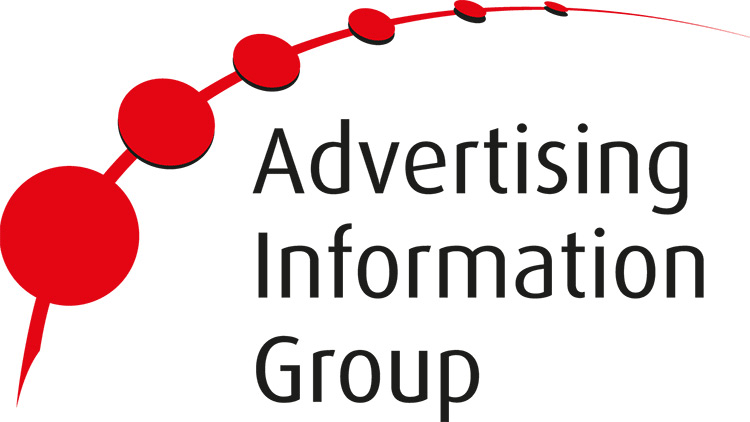AIG Newsletter 6 September 2022
Advertising Information Group-Newsletter
Lesedauer: 4 Minuten

POLITICAL ADVERTISING
EP CULT discusses draft opinion on political advertising
On 1 September, the EP CULT Committee held a discussion on the draft opinion on the proposal on Transparency and targeting of political advertising. Rapporteur, Sabine Verheyen (EPP) presented her amendments that focused on provisions on media, consistency between offline and online political advertising and coherence with the AVMSD. Rapporteur Verheyen did not believe the AVMSD would be complemented by the regulation, as she felt it did not provide appropriate protections for the freedom of the media. She argued that determining the difference between what was free journalistic content and what was political advertising was a grey area. Further clarification on the scope was needed.
Shadow Rapporteur Lucia Ďuriš Nicholsonová (Renew) called for online repositories of political ads with a transparency notice set up by publishers who were not online platforms. The Rapporteur stressed that editorial freedom must not be affected by measures on political advertising. MEP Petra Kammerevert (S&D) was frustrated by the over-regulation of the media sector.
EP LIBE - Transparency and targeting of political advertising
On 5 September, the LIBE Committee also met to discuss political advertising. Whilst MEPs agreed that further transparency and some level of curtailment of targeted political advertising was required, they were split as to whether there should be a wholescale ban on targeted political messaging or whether the solution should be to put clear limits in place instead.
EP JURI draft opinion on political advertising
On 27 July, the JURI committee also published its draft opinion. Rapporteur Angelika Niebler (EPP) believed political advertising informed voters on priorities of political actor and was key to fostering debate and enhancing democratic participation. She stressed it was important to separate editorial content from political advertising by definition, so that freedom of the media and freedom of expression were safeguarded. On scope, MEP Neibler said the regulation should be limited to those who disseminate political messages and be focused on providers of digital political advertising.
On 5 September, the JURI Committee discussed the draft opinion. MEPs agreed on the need to protect editorial content, but were divided on the rapporteur's suggestions to limit the regulation only to digital advertising and to exclude from the scope local and regional elections.
EP AFCO draft opinion on political advertising
On 27 July, the AFCO committee published its draft opinion. The draft report proposed the creation of a single European political advertisement repository, to be set up and managed by the Commission. Rapporteur Daniel Freund (Greens/EFA) also believed VLOPs should be required to display a number of political ads free of charge during the elections to the EP, based on the principle of equal access.
DIGITAL
ITRE MEPs endorse agreement on the digital decade
On 1 September, the EP ITRE committee endorsed the interinstitutional agreement reached with the Czech Presidency on the “Path to the Digital Decade” plan (14 July).
The agreement sets up a roadmap for digital skills, infrastructure, businesses and public services. It aims to: ensure 80% of the population aged 16-74 have basic digital skills; deploy 10,000 climate neutral highly secure edge nodes; enable 75% of European enterprises to use cloud computing services, big data and AI; and ensure more than 90% of European SMEs have reached a basic level of digital intensity. The agreement will be put to a plenary vote in November.
FOOD ADVERTISING
Question for written answer to the Commission from Dolors Montserrat (EPP) on NutriScore system
The Italian competition authority announced that the NutriScore system could not be used in Italy unless accompanied by a warning notice for consumers. Otherwise, consumers could be misled when selecting food since it 'does not give consumers an incentive to make a proper appraisal so that they follow a sensible eating plan that meets daily nutritional requirements'.
MEP Montserrat argued that in so doing, the authority agreed with Italian and Spanish farmers; who complained the NutriScore was unjustifiably detrimental to star products in the healthy Mediterranean diet (e.g. olive oil). Her questions were as follows:
- Is the Commission suggesting that EFSA should design a system to inform consumers about the nutritional values of food?
- What progress has been made recently on the harmonisation of front-of-pack nutrition labelling as announced by the Commission?
- Are decisions such as the one taken in Italy and the demands of farmers and the healthy Mediterranean diet being taken into account in the decision about a common labelling system?
Written questions are answered within eight weeks.
DATES FOR YOUR DIARY
6 September: The EU Artificial Intelligence Act: potential impact beyond high-risk applications Event
12 September: Friends of Europe: dealing with far-right radicalisation and disinformation
14 September: AIG Exchange, 2-3pm CEST
14 September: Annual Data Privacy Conference
21 September: The Digital Marketing Exposition & Conference
21 September: EIT Digital Talents & Skills Event